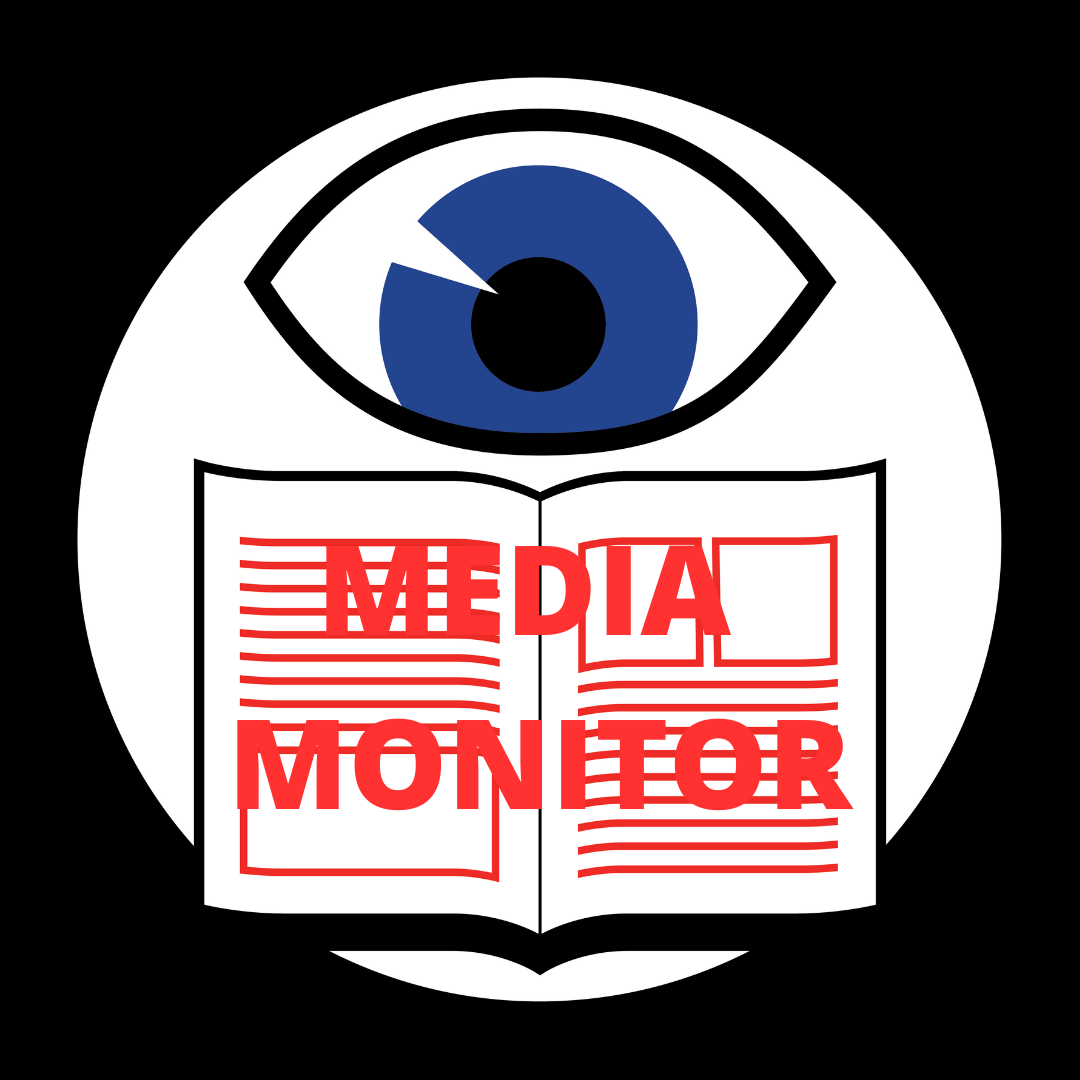Quality reporting on a range of issues remains problematic as unnecessary mistakes and confusing takes cloud public impressions of the reliability of news media
Poor reporting continues to undermine the Namibian news media sector.
In April 2023 Namibian state-owned media once again took the lead in making mistakes in basic reporting and engaging in bad reporting practices.
Take for instance reporting (image below) by state-owned New Era newspaper on 11 April on statements made by the chief executive officer of the Namibia Investment Promotion and Development Board (NIPDB), Nangula Uaandja, at an event early in the month.

According to this social media post, Uaandja is claimed to have said that the country has “secured about N$161 billion” in foreign investment. However, the headline of the actual article states that N$161 billion in investments are only “in the pipeline”. In both the literal and investment senses, “secured” and “in the pipeline” mean very different things – “secured” means a firm commitment and agreement to invest while “in the pipeline” simply means there are plans in development, which might or might not happen.
In another instance, on 12 April, in reporting on the opening of new hostel blocks at the Ongwediva campus of the University of Namibia, in the Oshana Region, the Namibian Broadcasting Corporation (NBC) made some elementary mistakes.
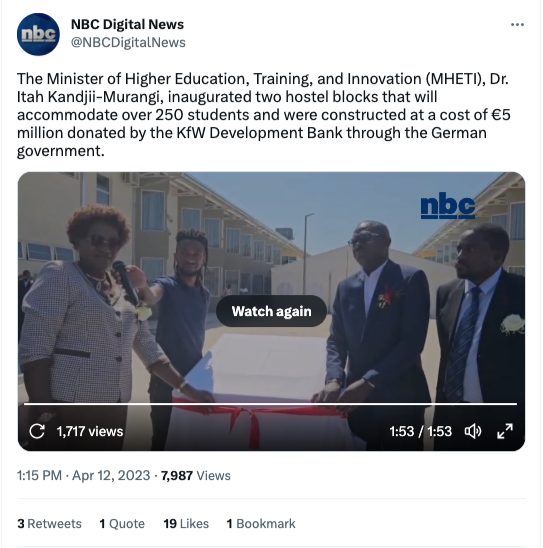
The text accompanying the video report by the NBC on social media does not indicate which institution unveiled the new student accommodation and where the event happened, or when it happened and how long it took to construct the buildings. And the first comment under the report simply asks “Where?”.
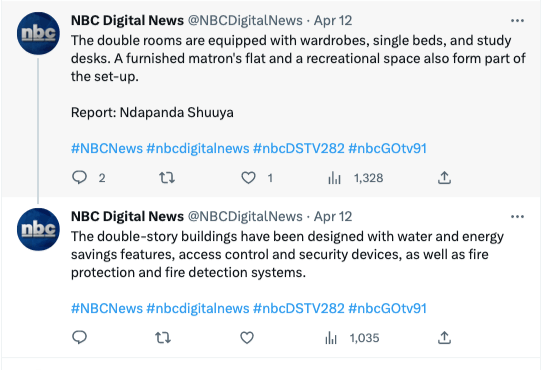
Also on 12 April, New Era posted the following to its social media:
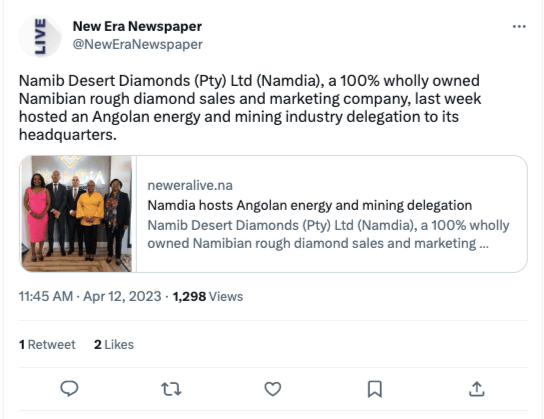
This post, and the article it links to, are misleading in that it reports on Namib Desert Diamonds (Namdia) as if it were a ‘normal’ company that is “a 100% wholly owned Namibian” entity, instead of just saying that it is 100% Namibian government-owned, making it clear that Namdia is a state-owned enterprise (SOE) and not a private, commercial concern.
But it’s not just the state-owned media that fumbled in April.
On 20 April, The Namibian posted the following:
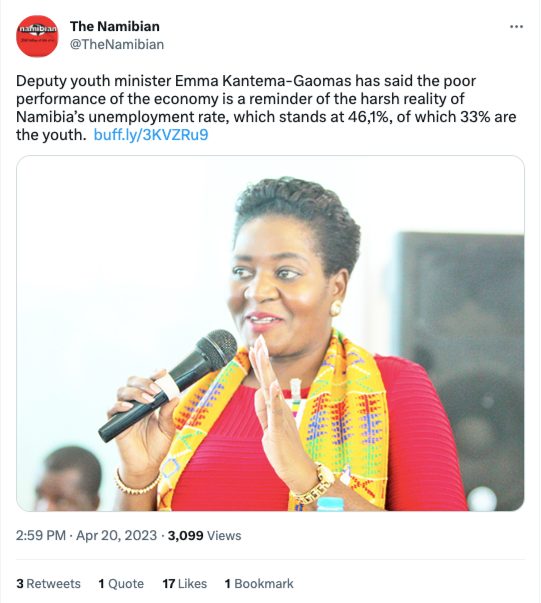
This post states, as well as the article it links to, that the Namibian unemployment rate “stands at 46.1%, of which 33% are the youth”. This statement is both inaccurate and confusing. According to the 2018 Labour Force Survey, by the Namibia Statistics Agency (NSA), the official unemployment rate at the time it was measured in 2018 was just over 33%, while youth unemployment stood at about 46%. It is important to remember that these figures are five years old.
That said, arguably the most bizarrely reported story of the month was what appeared to be a stock theft case, which the NBC reported on 21 April as follows:
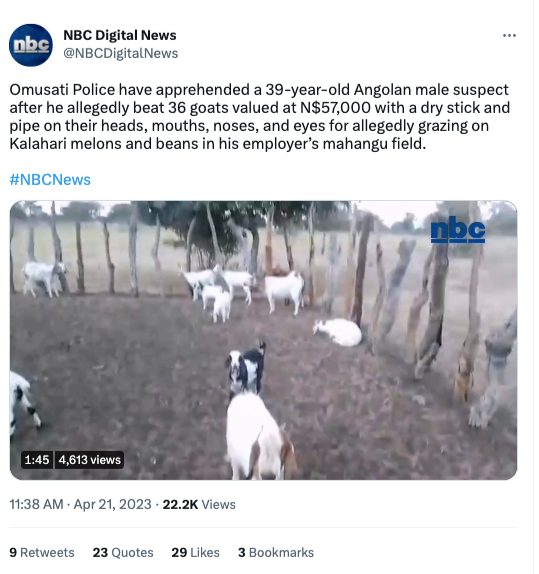
It was unclear whether the suspect was detained for stock theft or what one commenter jokingly said could be a case of “GBV (Goats based violence)”.
The shocking NBC social media reporting continued:
“It is alleged that the suspect, employed as a cattle herder, found the goats grazing in the mahangu field and moved the goats from there before locking them in his employer’s homestead and calling his friend so that they could beat them up.
The duo then allegedly, after brutalizing the goats, proceeded to poke out the eyes of about four goats in the hope they would learn a lesson not to graze in the specific Mahangu field, which is not well demarcated.
The goats have sustained serious injuries, including broken jaws and open wounds.”
The reporting totally ignored the very basics of journalism – who, what, where, when, why and how – and the accompanying videoclips were untranslated or un-subtitled and even soundless in large parts.
These reports are but some of the low quality news reporting examples that remain in circulation on social media and have attracted public scorn and mockery at the quality of reporting. Some other examples of shockingly bad reporting are also worth pointing out, such as this article reported from the perspective of two child abusers in the Namibian Sun on 27 April.
Concerningly, there are always more such journalistic atrocities. Poor quality reporting and editorial processes are undermining the image of the news media and the viability of quality journalism in Namibia.

